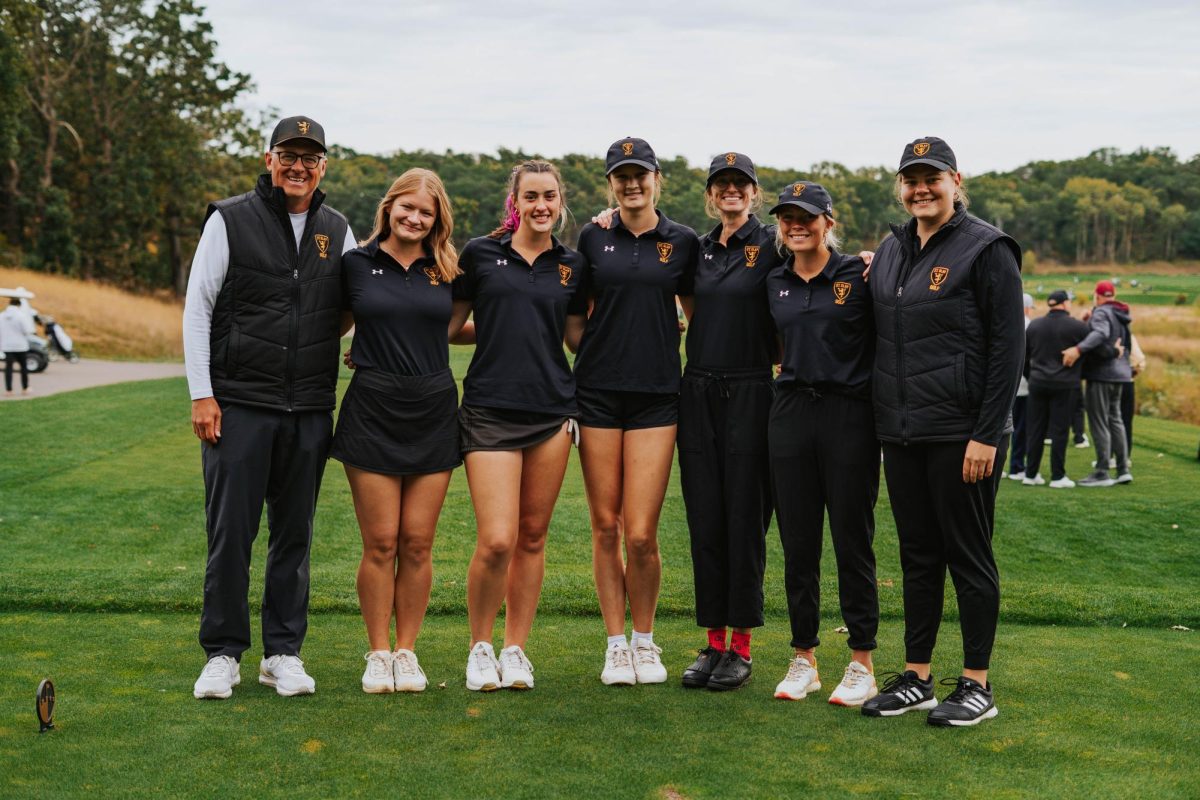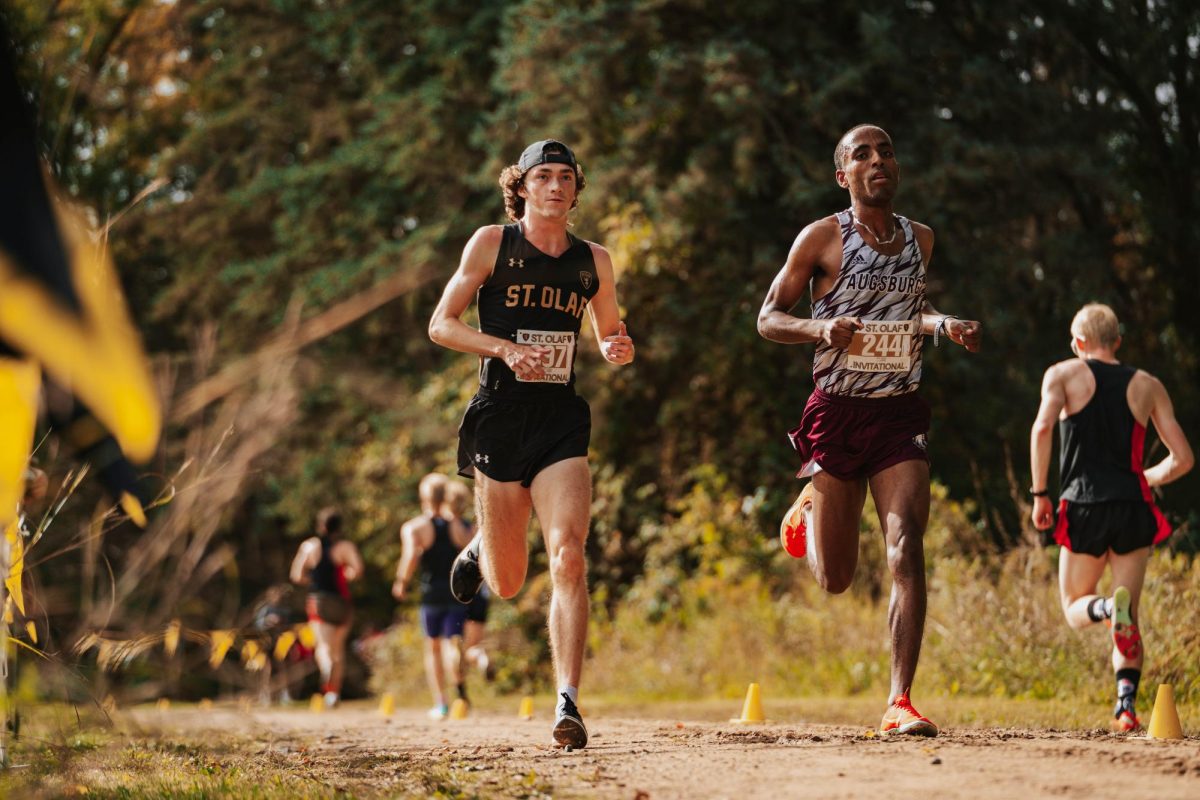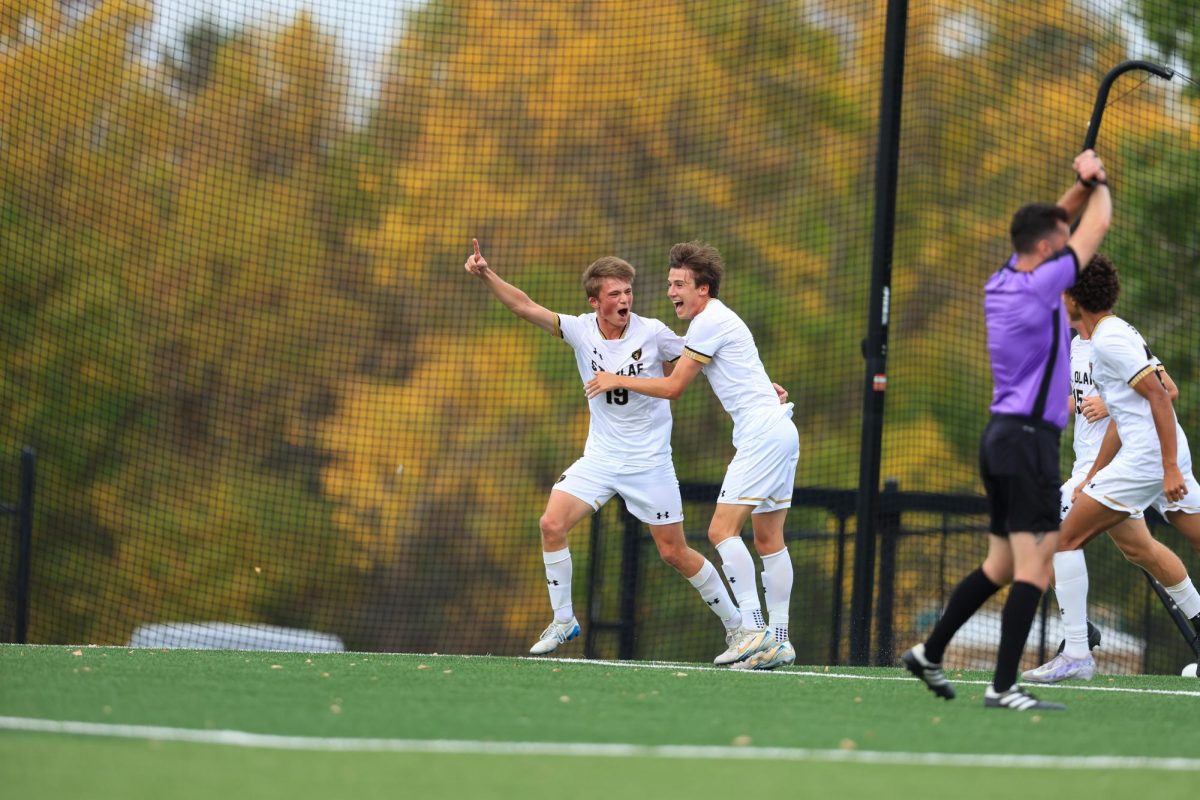There’s a slight lull in Ole athletics as winter sports wind down and spring sports shift into gear, but there is one league which isn’t slowing down anytime soon – campus eSports.
One might not consider League of Legends, Magic: The Gathering, Blizzard games or even Super Smash Bros. to be worthy of a sports feature, but these games are at the forefront of a growing movement allowing players to gather and hone their skills in virtual combat, growing as individuals along the way in a way that is comparable to athletic competition.
Some of these organizations meet simply to play against one another while others compete in an intercollegiate arena. St. Olaf’s Magic club aligns more with the former.
“[The game] has developed somewhat of a competitive scene,” Magic club president Benjamin Jorenby ’20 said. “Our group typically runs Booster Drafts, which are events where we open packs of randomized playing cards and build decks out of them to compete. That said, a lot of the more competitive members of our group have graduated … so we don’t do too much competitive stuff, but we meet on Saturdays to play sometimes.”
However, “League of Legends” certainly maintains a competitive edge here on the Hill, says Team Captain David Crisler.
“I run the League of Legends team, which is more competitive,” Crisler said. “We compete in intercollegiate play and we practice two nights a week for about two to three hours and then on Saturdays we have matches.”
Both leaders have watched competitive gaming grow in popularity over the last several years. When asked about the surge, Jorenby mentioned that accessibility and visibility in the Information Age has been crucial to the rise of such an improbable industry.
“Services such as Twitch for live-streaming, and Wizards of the Coast, the company that puts out the game, have a bigger presence and can attract people to their accounts,” Jorenby said. “In this time when we can stream easily and have large-scale events, it’s becoming a lot more popular to do things that aren’t the typical sports, like football and whatnot.”
“Over time there’s been more and more money trickling in,” said Crisler. “Venture capitalists are beginning to fund things. Even five years ago, the sponsors in eSports were all keyboard companies or computer companies, all very endemic. But now, in the North American professional scene, for example, one of the major sponsors is State Farm. I think that’s a sign of there being a broader audience, of people with money taking notice … the more people that do it, the more respect it gets.”
For Crisler in particular, participating in and eventually leading a competitive gaming team has proven to be just as beneficial for his growth and development as participating on an athletic team.
“There’s deep strategy in the game and I’ve learned a lot of problem-solving skills, reasoning skills,” Crisler said. “Also, I’ve been leading it [League of Legends club] for three years and it’s a lot of work. I think as a leader I’ve become very, very confident. I’ve taken charge of other leadership [roles] in my musical ensembles the past couple years, and I think the confidence from leading this team has made me feel like I can lead anything.”
Indeed, the positive change that eSports have inspired reaches far beyond tournaments and casual meetings between players. Like more traditional sports, these new competitive mediums are effective in teaching teamwork and maturity while instilling a sense of sportsmanship.
“I was fortunate to come from a sports background, but I’ve had some players who are used to the solitary, individualistic type of gaming and don’t know what it means to be a teammate,” Crisler said. “A really close friend of mine was not a team player at all, he believed he was better than everyone else, he was selfish about resources in-game … we had to sort of [tell] him that, no, this was not the right way to play and that he needed to be a team player. He really matured from having that team experience that he’d never had before.”
Some may wonder whether these competitive gamers can compete professionally someday, with official campus teams being organized and sponsored for more widespread opportunities. The process has already begun, with an immense demographic on streaming websites, official college teams and even live broadcasts on ESPN for eSports tournaments possessing large followings, such as EVO in July.
Leaders such as Jorenby and Crisler are bringing camaraderie, sportsmanship and problem-solving skills to a new demographic of college students, providing an accessible and exciting outlet for those with open minds ready to commit to a new form of organized competition.




